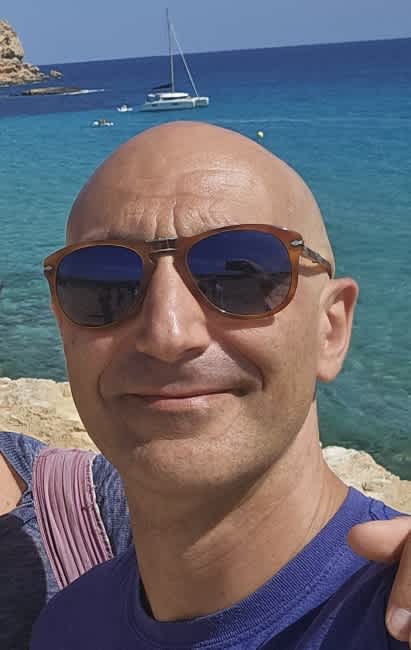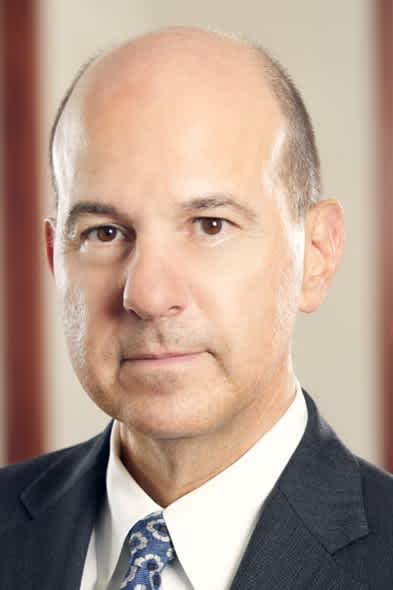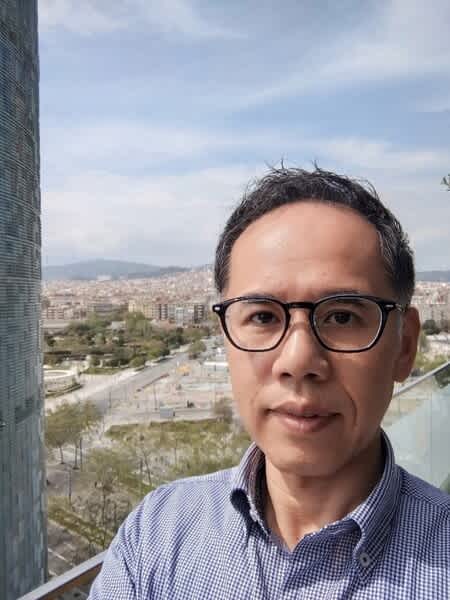Dealmakers must have a voice in patent policy
People with hands-on licensing experience understand how legal and regulatory changes will impact innovation, says Sisvel’s Matteo Sabattini
In March, Sisvel appointed Dr Matteo Sabattini to lead its global policy and advocacy efforts as Executive Adviser for Government Affairs.
Through more than 20 years in IP, Sabattini has held dealmaking, strategic and policy roles for some of the biggest players in the licensing market. In two previous stints with Sisvel, he managed a series of pools from 2009-2013 and served as CTO of the Sisvel Group from 2014-2017. He has also held senior roles with InterDigital, Ericsson and, most recently, IoT licensing firm Convida, where he was President and Chief Licensing Officer. An engineer by training, Sabattini holds a Ph.D. in Electrical Engineering from UC-San Diego and an MBA from the George Washington University.
In this interview with Sisvel Insights, Sabattini discusses his path from technologist to dealmaker to policy advocate, explaining why he has made it his mission to ensure that lawmakers and regulators understand the link between intellectual property and innovation.
Matteo Sabattini, Executive Adviser, Government Affairs
You have a long history with Sisvel – what brought you back to take on your new role?
The simple answer is I think Mattia Fogliacco is doing a tremendous job. I have been with Sisvel through various stages of the natural patent pool cycle – as certain programmes wind down you have to identify new opportunities. Two things have always stuck out: Sisvel is frequently ahead of its time and has always found ways to reinvent itself. That’s a tribute to the leadership and the whole team, and I’m privileged to be back working with all of them.
What do you think makes Sisvel unique?
What Sisvel can achieve with a small team has always been impressive, and the policy domain is no exception. After travelling and meeting policymakers, both in the US and in Europe, I’m proud of the fact that when Sisvel speaks up about a policy matter, it gets noticed – we find that doors are open for us to discuss the issues with decision makers. That’s a significant accomplishment for a company of our size, if you compare us to the large patent owners and the big implementers in the market. It’s a great testament to the reputation that has been won over 40 plus years in the marketplace.
Can you tell us a bit about your earliest experience with the company?
My first time around at Sisvel started in 2009. I found it fascinating to transition from a purely technical role into the business world of patent licensing and monetisation. I had started my career with a firm conducting technical patent analysis and prior art search. It was eye-opening to learn about this other side of patents, because as an engineer it’s not something you are entirely familiar with.
In your education and early career as an engineer, were patents not emphasised?
I find it bizarre that as an engineer I had not known enough about IP and patents until I started working in the space. Throughout my undergraduate degree in Italy and graduate studies in the US we were never taught what intellectual property is, how to obtain it and why protecting it is important. You would stumble across patents from time to time, but there wasn’t a course or even a seminar explaining why it matters. It was only later that I learned IP is extremely important for innovation and that engineers need to know about it.
Have you seen any of the same disconnects in the private sector?
I don't see a lot of VCs being particularly interested in pushing a patent strategy when dealing with their portfolio companies. They may like the idea that there are some IP assets that they can get their hands on if a startup goes bust, but they're not particularly acquainted with the strategic dimensions of using IP to create value within an operating business – whether it’s patents, trade secrets or know-how. That is sometimes also true of the C-suite of large corporations, even those with large IP portfolios. Here too, I think there is a lot of education that could be done.
Perhaps some of the dominant narratives around IP in business have created misapprehensions in the corporate world. For example, Rembrandts in the Attic was an excellent and influential book that did a lot to raise awareness of IP and the strategic use of patents. But many people took the wrong lesson away: that it’s all about ‘winning the lottery’ by finding a great patent that can be monetised. That’s an oversimplification, and it’s also not an approach that lends itself to creating a strategic business plan around IP.
In reality, a successful strategy starts very early and delivers over a long-term horizon, and that's where I think investors and corporates get a little lukewarm.
So, you came from a technical background then learned about the business side of patents – when did you start to get involved with policy?
I returned to Sisvel as CEO of Sisvel Technology in 2014. Of course, Sisvel Tech is a technical organisation, but it's really a strategic role that’s all about orienting Sisvel towards achieving its overall business objectives. We need strong assets, and the Tech team is instrumental in making sure that’s the case.
But while that was really a business-focused role, it is also where I began to appreciate the need for Sisvel and others to have a much stronger voice in the policy realm.
When I was CEO of Sisvel Tech we were closely following standardisation activities, specifically at ETSI, where there was an active patent policy group. I had a eureka moment where I realised that Sisvel and other patent pools were just not involved in the policy debate – at the SDO level or anywhere – and that this was a really important conversation we were missing from.
As a pool executive, what were you trying to add to the policy conversation?
We started by becoming more active within 3GPP and ETSI and attending the IPR committees there. We then began to engage with policymakers in Brussels, often in conjunction with some of our patent owners.
I see a lot of value in having people with on-the-ground experience taking part in those discussions. Many of the decision makers understand IP in theory but may not appreciate the practicalities of what we do. When you can explain to a policy maker in Brussels or elsewhere the role pools play on a day-to-day basis and how it brings efficiencies to the whole ecosystem, that has real value.
What’s important for policymakers to understand about the role pools play in the market?
Having worked in both bilateral and joint licensing programmes, pools are highly complementary to other licensing activities. It’s great for the market to have options. At the same time, there are areas where pools are uniquely suited to simplifying markets that could otherwise become extremely complex. We certainly see the cellular IoT pool that Sisvel runs picking up a lot of momentum because that's an area where a pool can be instrumental in bringing predictability and transparency to a fragmented market.
That’s why I think you see a lot more interest from policymakers in pool solutions. The main policy initiatives have the stated goals of transparency, simplification and predictability. When pools like Sisvel’s are already delivering on those objectives, and the market is endorsing such solutions, policymakers need to know.
Do you think there are misconceptions about pools, or is it mainly a lack of awareness?
I think it’s a combination of things. We sometimes hear claims that pools are one-sided or that they only work for patent owners. There may not be an awareness that the administrator’s incentive is to bridge the gap and find terms that will maximise the amount of consensual, frictionless deals that take place – or that in many Sisvel programmes the patent owners are also implementers in the space.
Of course, not all pools are the same. When we explain the Sisvel approach to building programmes, it very often becomes clear that we are aligned with policy makers in terms of objectives around transparency, efficiency and fairness.
Sisvel has made its views well known on the EU SEP regulation, the Tech Transfer Block Exemption Regulation review, and other hot-button topics. Europe seems to be at the centre of IP policy – what’s your general outlook?
The SEP policy discussion often centres on 3GPP standards, which are developed in Sophia Antipolis [in France], so to some extent Europe has always been at the centre of the debate.
What I think is a little disjointed is that in the UPC, Europe finally has a venue to compete with courts in the US and China from the perspective of market size and patent specialisation. However, at the same time, as the continent is losing its edge when it comes to standards implementation, you have policy proposals seeking to undermine the leadership it has long enjoyed on the standards development front.
I think the biggest mistake that we're making right now in Europe is to focus entirely on standards implementation. If you look at China and the US, they're fiercely competing on leadership in the development of standards while the EU debates proposals that would burden that activity – something European companies excel in.
Meanwhile, the justification for measures like the SEP regulation is always that they will benefit SMEs. But if you speak with many SMEs in the tech industry, they will tell you there is very little practical benefit to these proposals. Of course, the proposals also completely ignore the interests of those SMEs active in the development of standards, some of which participate in Sisvel pools.
You have also recently visited Capitol Hill in Washington DC with some of the Sisvel senior leadership. Can you give us your outlook on the US policy environment?
Well, to start with, we have put out a statement of support for several of the patent reform bills in the US Congress addressing important issues like injunctions, patent eligibility and the PTAB.
It’s a real positive that there are legislators on Capitol Hill who are very familiar with patent issues, including SEPs. For example, you have a very senior lawmaker in Senator Chris Coons who has practised patent law himself, so there is a level of understanding there.
One thing that I have found is that everybody in Washington is always very happy to talk about innovation and everybody agrees that it’s very important. But if you drill one level down and ask about protecting that innovation, not everybody's on the same page.
Still, I think patent pools is an area where we can do a lot of education because not that many people are familiar with pools, even among the few on the Hill who really understand IP.
Just to give one example, the US government is very attuned to AI and to strategic technology competition with China in that domain. How many policymakers know part of China’s national AI policy is the encouragement of a national patent pool? That is a fact people should be taking notice of. But to understand what it means strategically, you have to know what a patent pool is and what role it plays. So, there’s a lot of education work we still have ahead of us.
Quickfire…
What’s a typical weekend activity for you?
Running after my three year old boy.
What should someone with a free day in Bologna make sure they see, do and eat?
I will need an entire separate interview to properly answer this question. But let me try: don’t miss the Basilica of Santo Stefano, climb the hills just outside of Bologna (go to San Luca, or the Colle dell’Osservanza) for great views of the city, eat “il gran bollito alla Bolognese”, boiled meats (a link in Italian here, use any AI tool to translate it, or learn some Italian).
Where is your favourite holiday destination?
Summer or Winter? A restaurant by the water and a steep ski slope, respectively.
What’s the most memorable live performance you’ve witnessed?
The 2008 NBA finals between the Boston Celtics and the Los Angeles Lakers. Growing up, I picked Larry Bird over Magic, and seeing the Celtics win against the Lakers was remarkable. One item in my bucket list crossed off.
What’s your favourite TV series?
24 (does that show my age?). And Fawlty Towers from the classics.
What’s the best piece of professional advice you’ve received?
Not exactly advice I personally received, but a quote by Mario Andretti: “If everything seems under control, you're just not going fast enough”.




